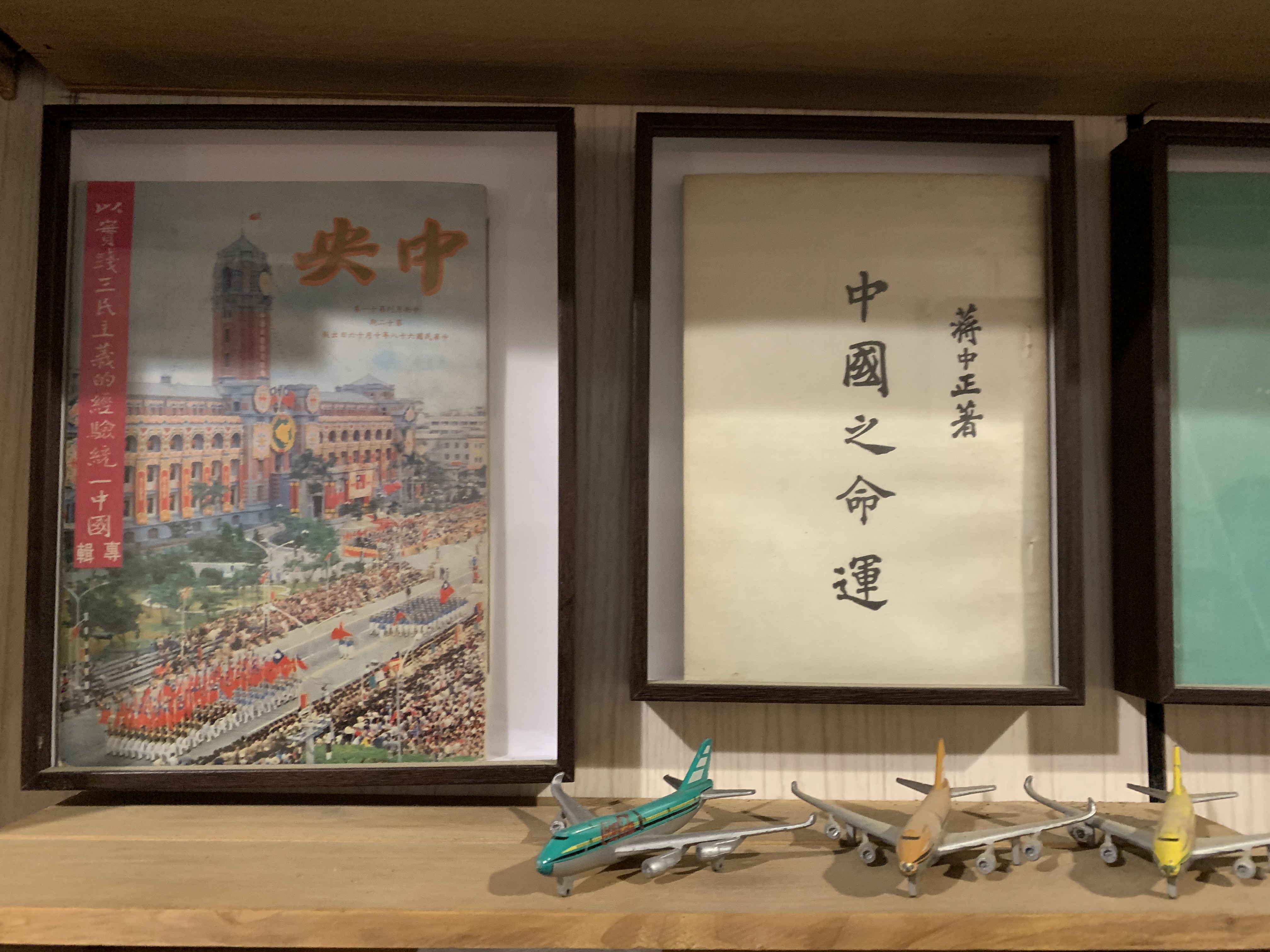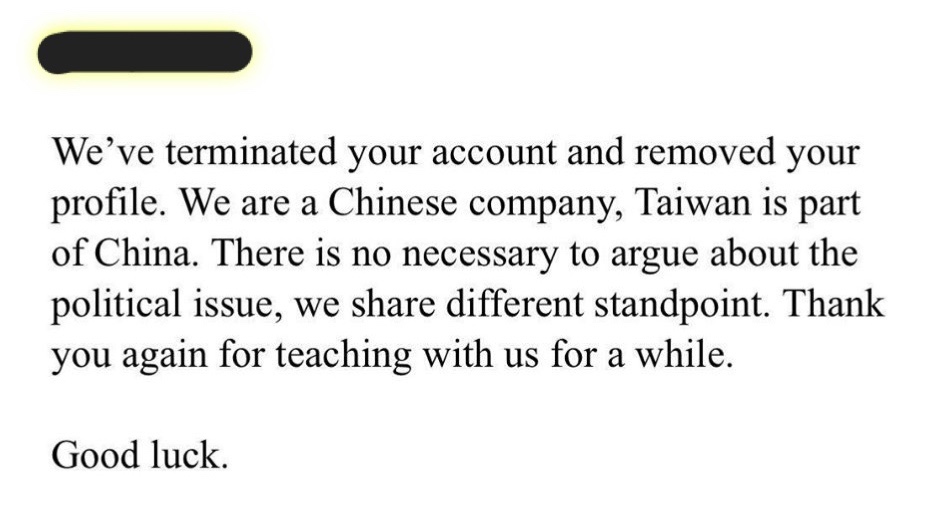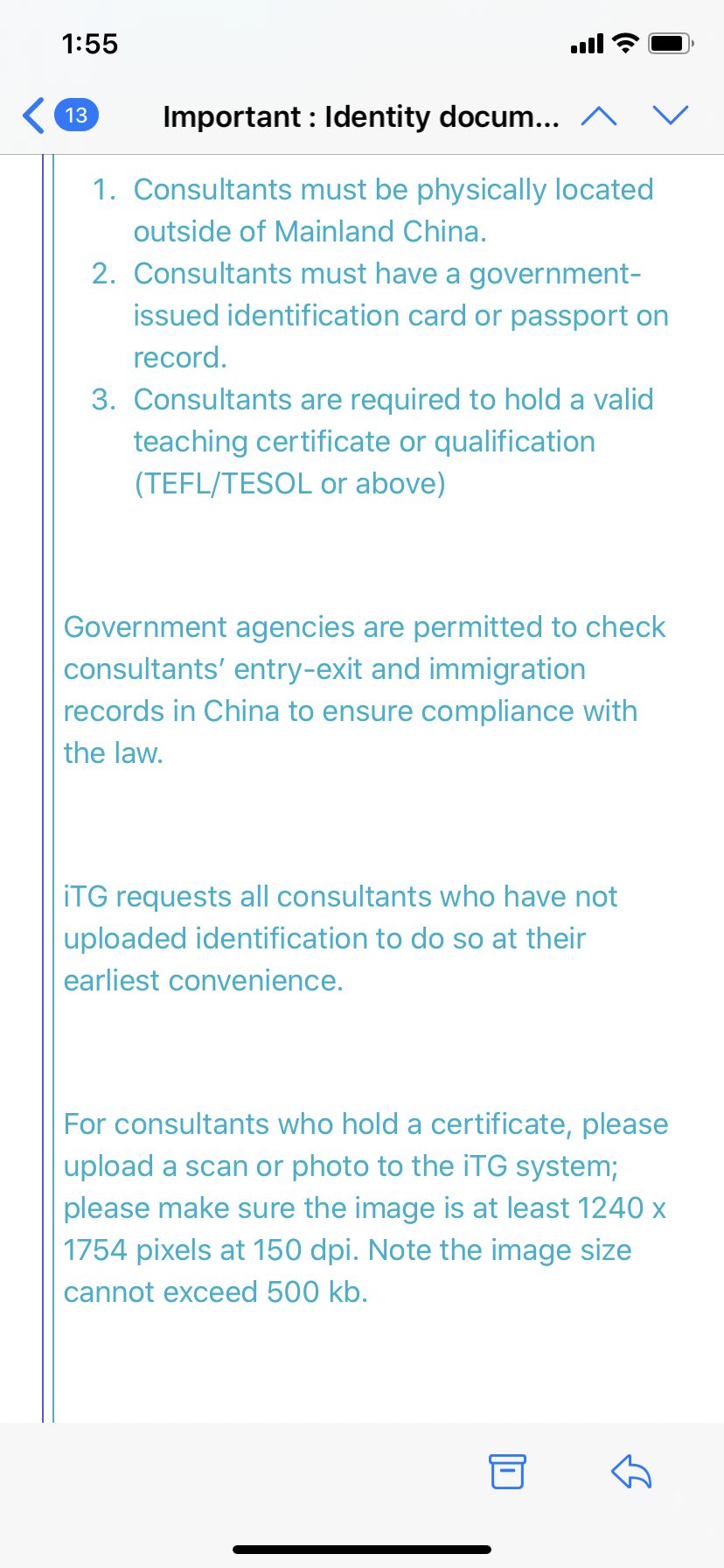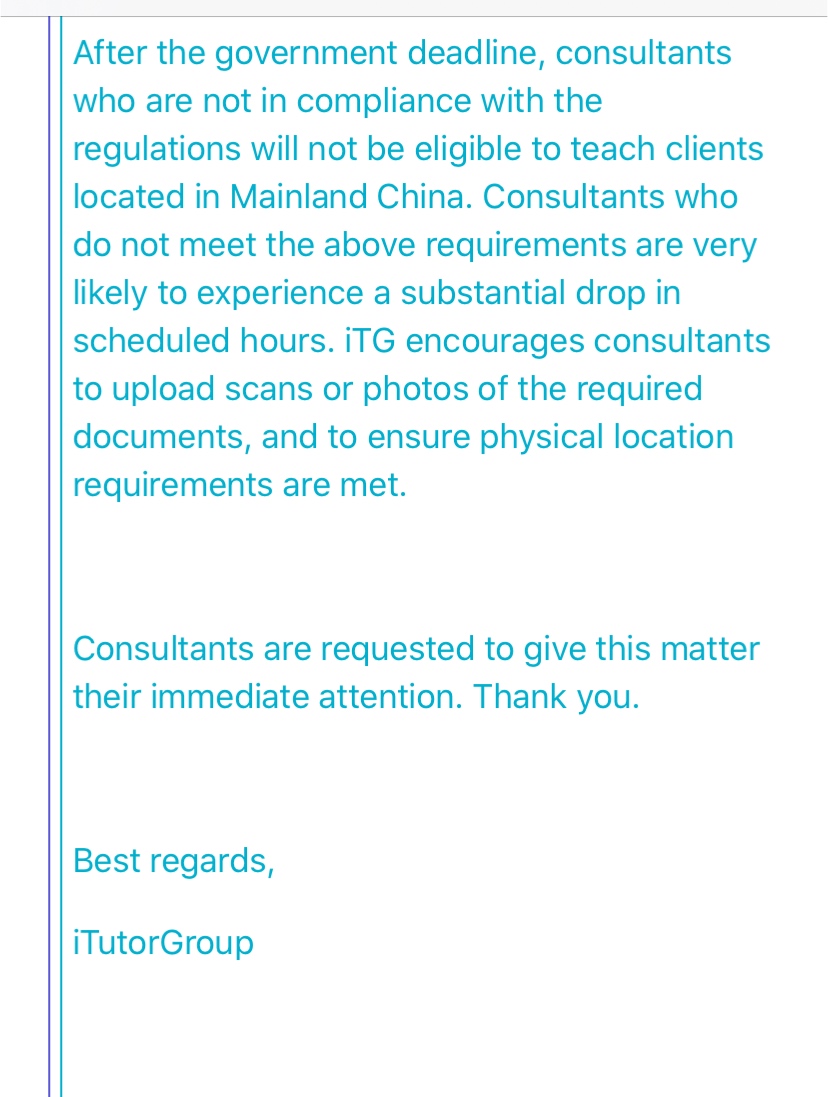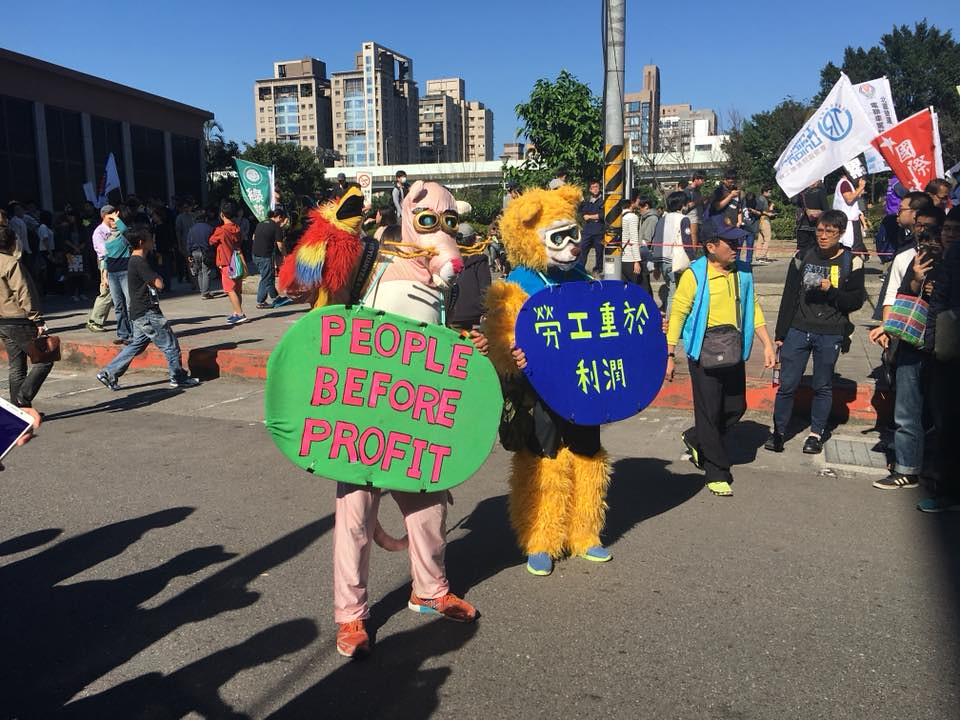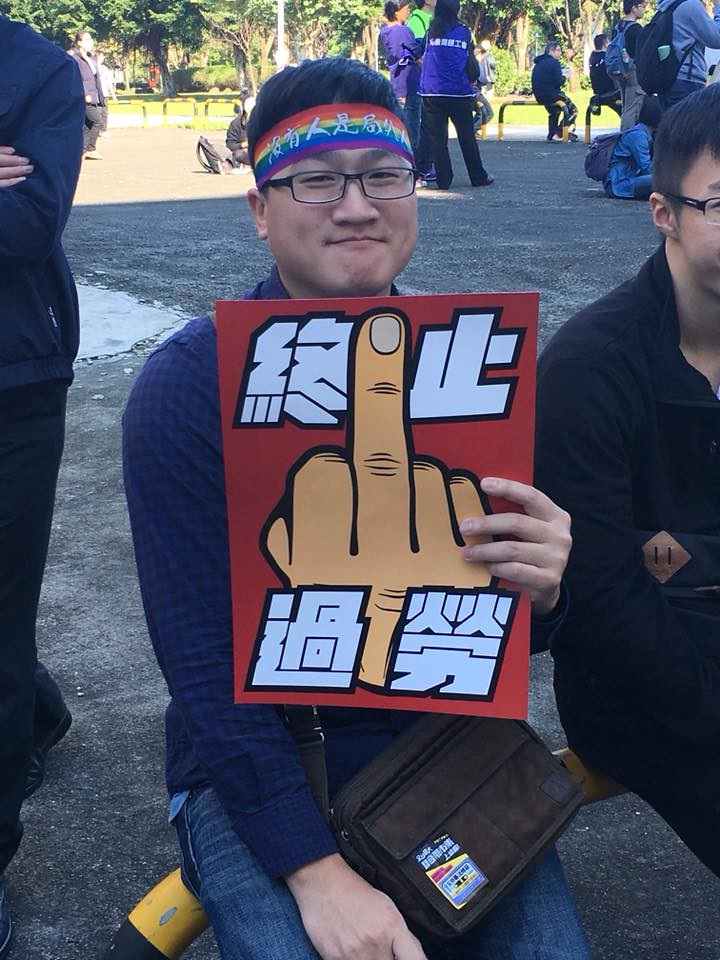
Let me say at the outset of this post that post-dissertation life has been a mishmash. That's where my headspace is at, so until the fog clears, I'll probably be writing more like a casual blogger. Not only did work pick up immediately after I submitted the thesis, but I've come to realize that I need to take at least one year off, and probably more than that, from academic work and not even think about the possibility of a PhD for now, just to keep myself on an even keel. (To be clear, a few people have thought I was doing a PhD but in the UK, a "dissertation" is for a Master's). I realized when I hit that 'submit' button that I've been engaged in some sort of high-level teacher training since 2013, whether for a professional or academic degree, and it's time to stop for a bit and breathe. It's time to think about how I can put all of that challenging, time-consuming and expensive training to good use contributing to Taiwan.
Anyway, let's talk about corporations, and how much they suck. I won't give too many details now, but I'm currently embroiled in a battle with one of my (former) employers over my political speech, and Lao Ren Cha as a blog is directly related. I'll tell the whole story when it's finally over. For now, the main issue is that I criticized the political position taken by a large corporate entity that I used to have a professional association with, and was essentially fired for it. They had changed their website to say "Taiwan, China" instead of "Taiwan", and I spoke out. I complained in the office -- an act I was willing to agree not to do again -- and here, without revealing exactly what my association with them was.
Frankly, I only continued to do minimal work for them after this change because I genuinely like my coworkers in the Taiwan office, who are generally (if not unanimously) on my side. I hoped that continuing to shine a light on the issue, along with the Taipei office itself expressing strong disapproval, would eventually cause them to see the lack of logic and moral integrity in their choice to take a political stance, and change it back. That didn't happen - instead, I was told I would have to remove any posts mentioning the organization. I refused, and continue to refuse. The reason is simple: in Taiwan, despite any contracts one may have signed promising not to criticize one's employer, it's actually protected speech to criticize them publicly for political reasons, which I did. The linked article specifically discusses unions -- I'm not a member of a union, but honestly, that protection should cover all professional relationships.
I don't expect I'll ever work for that corporation again. Despite this, I appealed the decision on ethical principles. I want them, as much as possible, to face the full measure of their actions. I won't quit - they will have to fire me. It's deeply unacceptable to me that an employer might take a political position (especially that Taiwan is a part of China) at the behest of the Chinese government, and then insist its employees are not allowed to publicly disagree with this in any way. If they can take a political position, so can their workers, even if that position directly criticizes the employer. If an employer doesn't like that, the simple solution is not to take a political position at all, especially an ethically bankrupt one like calling Taiwan "China".
This particular corporate entity, which I will name once my appeal has gone through (and is most likely rejected), doesn't stop at restricting the speech of people who openly admit to having some sort of relationship with them. There's another post out there, by another person, criticizing them for the same reason. That writer never explicitly states that they work with the company, and is written only under their first name, with no photograph. And yet, that person also faced a disciplinary interview and was asked to remove all reference to the company in their post - effectively, their political speech was being censored at the risk of losing their job. The outcome of that is still unclear, but I have a feeling I'll be writing about it in time.
Despite this, I still believe that when political speech intrinsically includes a criticism of an entity, it is impossible to separate the political belief and its expression from the right to free speech.
I discussed this issue with a friend who works for a large corporation. She complained that her employer also takes a pro-China stance and does not support the protests or fight for democracy and freedom in Hong Kong, because China is such a big market. Some high-level people have quit over this, but she said there is a feeling that one can't publicly state, under one's own name, that they disagree. It may not even be acceptable to simply state that you support Hong Kong under your own name, without mentioning where you work, if you can be linked publicly with your workplace in other areas. We discussed Cathay Pacific, and how rank-and-file employees can be barred from expressing political opinions in their private life (and how even higher-ups who want to stand by them face scrutiny or may feel they have no choice but to resign). We discussed how the reality is grim: some big boss types might take that bullet, but most won't. China's a big market. They'd rather risk the moral and ethical (and in some places, legal) dubiousness of firing employees rather than stand up to a genocidal government, even as they know it's wrong.
So how do you hold down a corporate job or even contract, knowing that at any moment your political beliefs could make it impossible for you to continue working there? How do you support yourself?
I've managed to build a pretty solid freelance career with mostly local employers who would not take action against me for my political beliefs -- pretty much all of them are aware of how I feel, and being local, they generally would not take a pro-China political position as a company. This more corporate contract job was just one of many, and my income from them was not large. I can afford to lose it, which means I can afford to stand by my beliefs and my principles. Not everyone can, though, and I wish I had a better answer for those who can't just refuse or quit.
It's easy to retreat into leftist platitudes like "dismantle corporations", and on some level I agree with that. They suck, and better ways of organizing workforces, services and production exist, from cooperatives to local enterprises. But, that's work that takes generations and we don't have a few generations' worth of time as China grows more aggressive. I could say "don't take corporate jobs" but that's not realistic for many people who need to feed themselves today (anti-corporate sentiment is great but putting food on the table does matter).
I could say the CCP simply needs to fall - and it does! - but that won't solve the more general problem of employers restricting employees' political speech on other issues.
All I can say is this: firing me won't solve the problem, because the problem is their decision to call Taiwan "China". The issue won't go away unless they change their political position rather than fire people who speak out against it.
And also this: my contract stated that I was obligated to "maintain the integrity" of that organization. But if the organization is displaying a lack of integrity, what exactly are they demanding I maintain?


